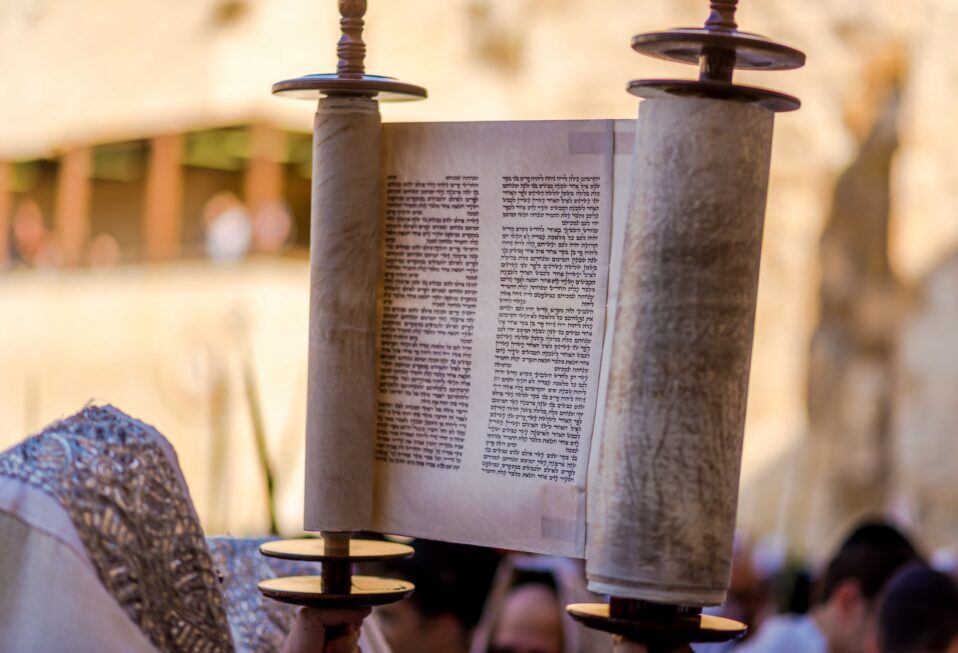By Julie Stahl
“For seven days you must present special gifts to the LORD. The eighth day is another holy day on which you present your special gifts to the LORD. This will be a solemn occasion, and no ordinary work may be done that day” (Leviticus 23:36 NLT).
On the day following the seven days of Sukkot, Simchat Torah is celebrated, which literally means, “rejoicing with the Torah.” The Bible says on that day to have another “holy convocation” on which sacrifices are offered to the Lord and no work is permitted.
Simchat Torah is a celebration marking the conclusion of the annual cycle of public Torah readings, and the beginning of a new cycle.
Simchat Torah is a component of the biblical Jewish holiday of Shemini Atzeret (“Eighth Day of Assembly”), which follows immediately after the festival of Sukkot in the month of Tishrei (mid-September to early October on the Gregorian calendar).
Every year, synagogues read through the entire Torah in designated weekly portions. The yearly reading cycle ends with Deuteronomy and begins again in Genesis on the day of Simchat Torah.
“We read the Torah in a continuous cycle, because the circle is both a symbol of eternity and equality. Just as God is eternal, the Torah is also eternal. Just as God created all humanity in His image, we too must treat all humanity accordingly,” Rabbi Welton says.
“There’s an ancient Jewish custom to dance for hours around the bima (“lectern”) on Simchat Torah in a circle symbolizing the eternity of the Torah and its Author,” he adds. It’s also common in Israel for many to dance in the streets.
In Israel, both Simchat Torah and Shemini Atzeret are celebrated on the same day, while outside of Israel in the Diaspora, they are celebrated as two days—first Shemini Atzeret, then Simchat Torah.
According to Rabbi Welton, Simchat Torah is not mentioned in the Talmud and only appears during the Middle Ages in historical contexts.
Julie Stahl is a correspondent for CBN News in the Middle East. A Hebrew speaker, she has been covering news in Israel full-time for more than 20 years. Julie’s life as a journalist has been intertwined with CBN—first as a graduate student in Journalism at Regent University; then as a journalist with Middle East Television (METV) when it was owned by CBN from 1989-91; and now with the Middle East Bureau of CBN News in Jerusalem since 2009. She is also an integral part of CBN News’ award-winning show, Jerusalem Dateline, a weekly news program providing a biblical and prophetic perspective to what is happening in Israel and the Middle East.




Post a comment